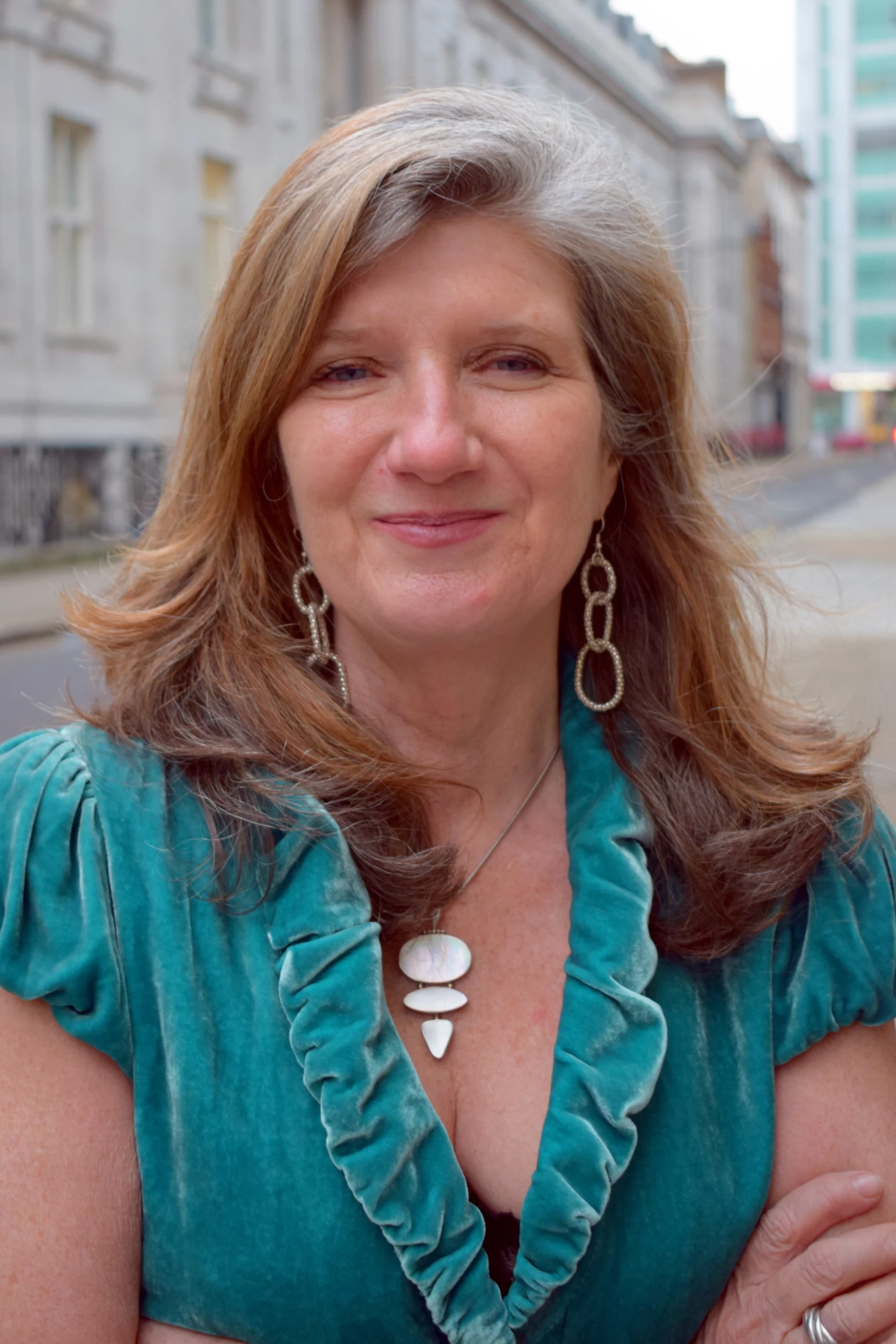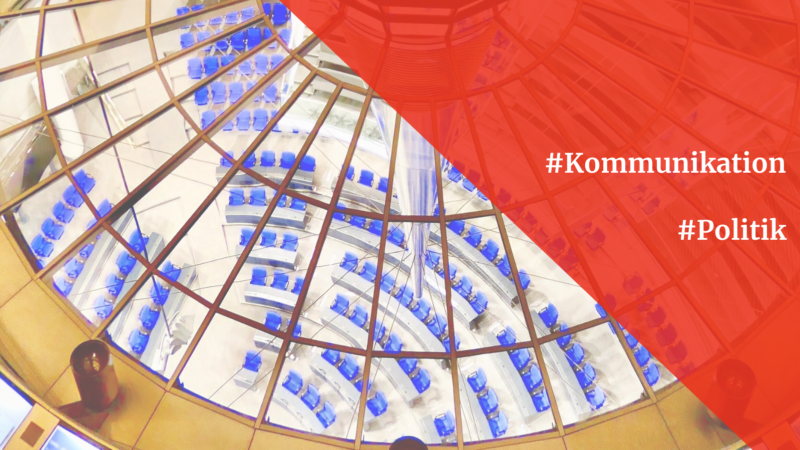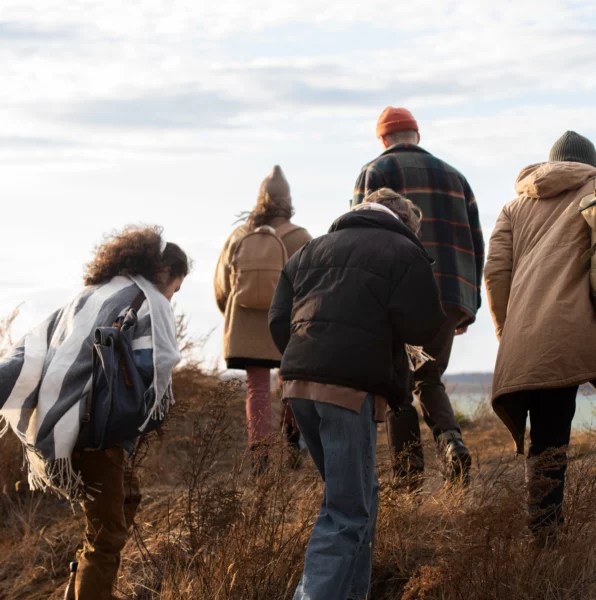Are scientists becoming too political? Fiona Fox, director of the British Science Media Centre, raises concerns about the increasing overlap between research and advocacy. She asks: How do you defend science against politicisation if scientists themselves want to be political?
“I am fighting against the politicisation of science”

Ms. Fox, you argue that there should be a clear separation between science and politics. How does this separation serve science and the public?
One of the reasons I’ve been campaigning for more separation over the years is that in the UK science communication has become increasingly influenced by politicians and government. It used to be that our major funders, such as the Medical Research Council and the Physics Research Council and so on, operated at arm’s length from government.
But six years ago there was a proposal to merge these bodies into a new organisation called UK Research and Innovation (UKRI), which would be, as its supporters said, “at the heart of government”. The idea was that this would give science a stronger voice in government, ensuring good funding and policy.
While this made sense in terms of funding and influence, being at the heart of government also means being subject to government communications. And the government communication system is designed to benefit politicians and governments, not necessarily science.
What does this mean in practice?
During the pandemic, we often got results from universities and wanted to hold press conferences. At first they’d agree, but then they’d say the government press officers wanted them to delay the announcement for a few days so it could follow the Prime Minister’s televised press conference.
Sometimes they didn’t want scientists to announce new findings at the Science Media Centre because the Prime Minister or Health Secretary wanted to announce them at their daily briefing. This meant that high quality science was being communicated first by politicians who didn’t fully understand it to political reporters who didn’t fully understand it either. That simply wasn’t the best way for the public to hear about new science.
The Science Media Centre
The Science Media Centre is an independent press office that provides the public with access to scientific evidence and expertise through the news media. Its mission is to offer accurate and evidence-based information about science and engineering, especially during controversial and high-profile news events when confusion and misinformation are common.
How can we make sure that science communication remains unbiased, even when politicians try to influence it?
That’s a challenging question for me, because I’m trying to address it, but I’m not very successful so far. I’ve written a book about the Science Media Centre and explored this issue. As part of my research for the book I looked into the communication of official statistics in the UK. I found something interesting. Statisticians used to collect data on crime and unemployment independently and then give it to the government to communicate. But it turned out that the government was spinning the statistics to make the crime and unemployment figures look better. This led to a backlash and legislation requiring official statistics to be independently published before the government could interpret them.
Now I’m lobbying for similar guidelines that require scientific data to be released separately from government, so that journalists can see it uninterpreted. When I investigate why the government is taking the lead in communicating scientific research from a university, I often meet resistance. Typically, I find that the scientists have been too quick to agree, arguing that since the government commissioned the research, it should lead the communication.
But when someone insists: “You can’t control that. We’re an independent university with our own scientific press office. We’ll work with you, inform you and accept quotes from ministers for the press release, but you don’t make the big decisions”, the government should accept that. There’s no sanction for asserting independence. I want to strengthen the voice of science communication. I want to say: you don’t have to do this.
What has the feedback to your lobbying been?
Mostly I have been spectacularly unsuccessful. But I have had one great achievement. I was able to raise the issue of ‘mission creep’, where more science was being drawn into politics. Before an election in the UK, civil servants have to be silent for six weeks and not make any announcements. This restriction began to affect university scientists, who were told not to comment on research because they were funded by the government. For example, climate scientists refused to discuss new research in Nature because it was published during the pre-election period.
We challenged this by going to the Cabinet Office, which oversees the UK’s civil service and government operations. They explained that the rules were created to apply to major announcements that could benefit the ruling party, not to the day-to-day work of university researchers. The Cabinet Office agreed and revised the guidelines to ensure they wouldn’t hinder regular research communications. This change gives me hope that we can make progress in keeping science communication independent of political influence.
As part of your guest professorship at the University of Heidelberg, you are teaching courses on science communication. What are you going to cover in the courses?
I decided to look at this question from a slightly different angle and ask: should scientists become advocates? Because if I am fighting against the politicisation of science and arguing for a separation between government, politics and science, what do I do when scientists themselves become political? How do you defend science against politicisation if scientists want to be political?
This question fits well into the context of the university, especially since the college I’m involved with aims to bring together the sciences and the humanities. They have created this professorship to bridge the gap between these fields and to study science communication. I don’t know the answer yet. My personal view, which I’ll present and see how it resonates, is that scientists should try to resist becoming advocates.
Why do you think scientists can’t be activists?
While scientists of course have the right to advocate, I would like to raise this issue for discussion. In my view, when scientists become activists, it can undermine public trust. But even the head of the college disagreed with me on this point. It’s a complex issue: should a climate scientist, after years of research, advocate specific policies such as geo-engineering or carbon capture and storage to mitigate climate change? Similarly, should a researcher on cannabis and ecstasy recommend decriminalisation based on their studies? I’ve looked at several studies that examined science advocacy and the public’s growing distrust of science.
What did these studies find?
I have found some interesting studies where academics read examples of science advocacy to a group of people and then ask who they trust more: the scientist who says the evidence suggests that children will not suffer much from covid and advocates keeping schools open, or the person who presents the evidence without making a recommendation about whether schools should open or close.
Interestingly, participants in these studies tended to trust those who refrained from advocating a particular policy. I’m very open to being told I’m wrong. I don’t think I’m going to win this argument completely, because many scientists now find themselves bridging the gap between doing research and influencing government policy. It’s worth noting that the Science Media Centre (SMC) itself takes no position on this issue.
Should there be a role for “science activists” who collaborate and disseminate information, while maintaining a clear distinction from scientists engaged in gathering critical climate evidence and other research? A separate field for science advocacy, distinct from science PR and journalism?
What I’m arguing for is that there should be clear labelling. Scientists who engage in activism may blur the lines between their scientific work and their advocacy, presenting their research as a basis for calling for specific policies. Scientists have the right to engage in political activism as citizens, such as joining protest marches. I just think they should keep these roles separate. I am in favour of protecting the space for collecting unbiased data and conducting robust studies.
As one newspaper editorial put it, scientists should prove their findings and leave the interpretation and advocacy to others. This work, while it’s less glamorous, is crucial in today’s polarised society. I like your suggestion that political activists and pressure groups such as Friends of the Earth or Greenpeace can use scientific data for campaigning purposes. Perhaps there’s a place for a separate category – such as science activism or science policy – alongside science journalism, communication and research.
The title of your upcoming public lecture is “Toxic public debates”. Why should scientists engage with the media when social debates are so toxic?
We need communicators to advocate for scientists‘ needs. At a recent workshop, scientists expressed concern about being attacked despite presenting facts and evidence rather than opinions. Science communicators have a crucial role to play in supporting scientists engaging with the media and social platforms. They should provide support against negative feedback and help scientists navigate media enquiries. In this environment, it’s important to prepare scientists for potential backlash and promote resilience.
I would like to emphasise: Many scientists enjoy interacting with the media and find it rewarding to do so through the SMC. They appreciate seeing their research disseminated quickly and contributing to more accurate and balanced media coverage. As well as the public benefit, publicly funded scientists feel a sense of responsibility and often receive praise and opportunities to collaborate from colleagues. There are so many benefits. We have to be careful that we don’t talk up the harassment side, so that scientists think, ‘If I want to engage with the public about my science, I’m going to have to go through this terrible time.’






